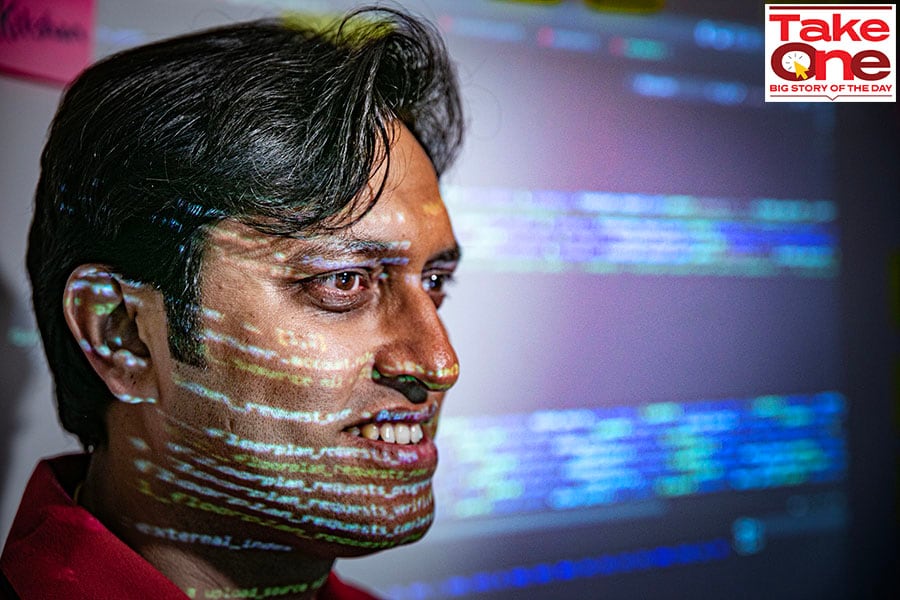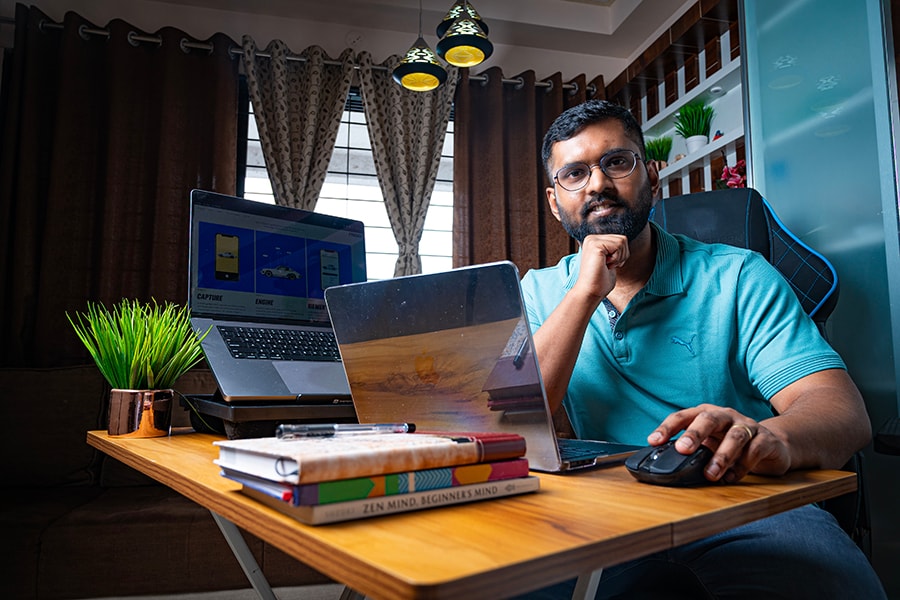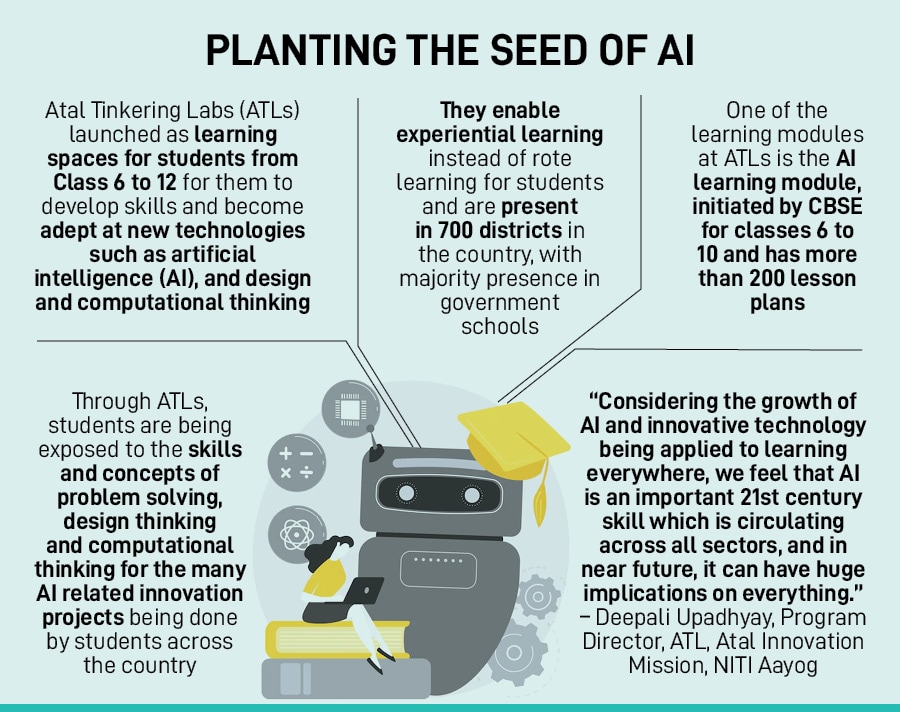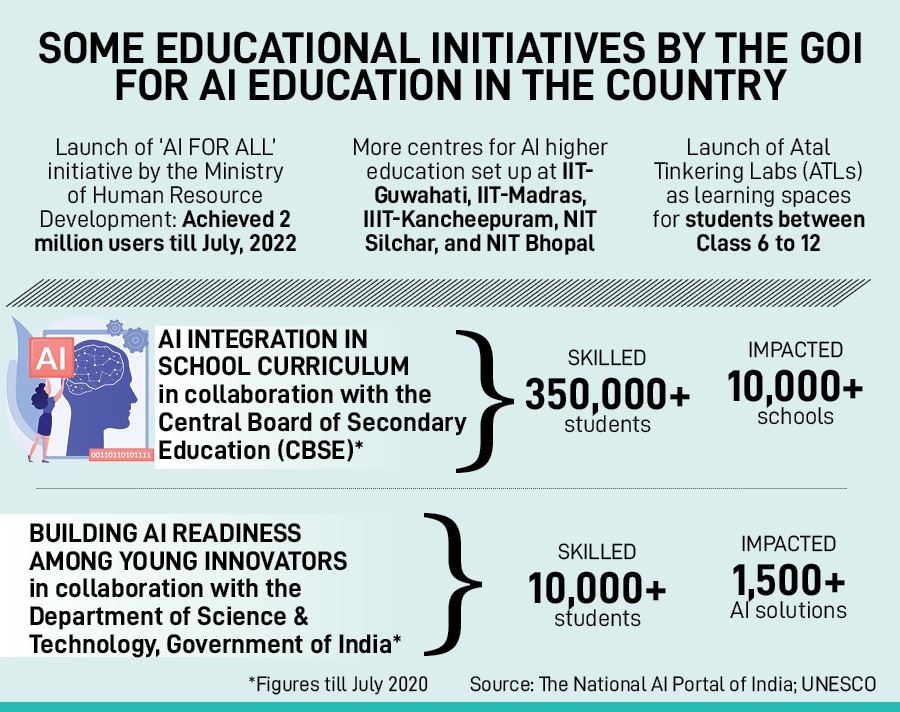
From schools to colleges to edtech platfroms, here's how AI is revolutionising education
Colleges and edtech platforms have introduced courses in artificial intelligence, thanks to the advent of ChatGPT and its counterparts. Will this demand sustain?
 Arvind Singh, founder, SuperBolter has been taking Generative AI courses on edtech platform GrowthSchool to enhance his AI-savvy design startup to stand out among competitors; Image: Selvaprakash Lakshmanan for Forbes India
Arvind Singh, founder, SuperBolter has been taking Generative AI courses on edtech platform GrowthSchool to enhance his AI-savvy design startup to stand out among competitors; Image: Selvaprakash Lakshmanan for Forbes India
Towards the end of 2022, as artificial intelligence (AI) chatbot ChatGPT was becoming the buzzword post its launch, Arvind Singh used it for the first time and was sure that a revolution has begun. “As a startup, I knew we had to start accelerating our AI projects immediately,” reckons the founder of startup Superbolter, a platform that allows users to design their own homes in minutes, like Canva, but for your house.
Singh has always believed in continuous learning in his entrepreneurial journey. This time was no different. Along with his team, he started taking up tutorials around Generative AI and ChatGPT about three months back on edtech platform GrowthSchool.
With the learnings from these courses, SuperBolter is incorporating Generative AI into its existing AI tech. “The introduction of generative AI has significantly enhanced our existing algorithms, enabling us to transform 2D floor plans into immersive 3D house constructions. With AI, users can explore renovation options for their rooms or generate fresh designs from scratch, all in a matter of seconds,” explains Singh.
He is only one of the many professionals and students, preparing to take the AI revolution head on.
Experts reckon that India could become an “AI outsourcing hub” for the world, with a massive tech talent pool. Tech industry body Nasscom reports that India houses over 2,700 global capability centres (GCC), of which, more than 65 percent are companies headquartered in the US. According to a FICCI-Access Partnership report, it is estimated that use of generative AI to supplement work activities could help unlock $621 billion of productive capacity across the Indian economy, equivalent to 18 percent of GDP in 2021. For the right workforce to be produced, India needs to prepare its existing and upcoming workforce with the right skills—AI education is at the centre of it all.










